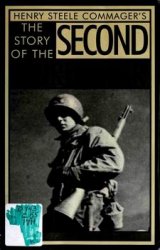1551
1911
1931
1941
1951
1953-1954
1959
1961
1963
1969
1973
1977
1979
1980
1981 1983 1986 1986
Libya falls under rule of Ottoman Empire.
Italy begins to conquer Libya.
As Italians complete occupation of Libya, they close Sanussi lodges and have Omar Mukhtar executed.
Two years of intense fighting begin in Libya as part of World War II.
(Dec. 24) Libya becomes independent monarchy under King Idris I.
Britain and United States gain leases to large military bases in Libya.
Oil is discovered at Sirte.
Oil pipeline is completed.
Federal system is terminated in favor of unitary system.
(Sept. 1) Coup topples Idris monarchy, placing power in hands of young army officers headed by Muammar Qaddafi.
Qaddafi publishes The Green Book and launches Libya's cultural revolution. Revolutionary Command Council is abolished.
Libyan troops go to Uganda to support Idi Amin.
Worldwide assassination campaign is waged against anti-Qaddafi dissidents. (Aug. 19) Two Libyan jets are shot down by U. S. planes.
Libya launches second major invasion of Chad.
U. S. fleet attacks missile sites and Libyan patrol boats.
(Apr. 14) U. S. resumes airstrikes on Libyan targets.
Programs, little of the new wealth reached the population as a whole. Government officials tended to be both incompetent and corrupt. By the mid-1960's the question was not whether Idrisi would be overthrown, but when and by whom.
Since 1956 President Gamal Abdel Nasser of Egypt—Libya's neighbor to the east—had been regarded as a hero throughout the Arab world. Nasser stressed pan-Arabism and socialist egalitarianism. One young Libyan Bedouin, Muammar al-Qaddafi, living in his family's tent in Sirte, listened with fascination and awe to Nasser's words on his radio.
Three years before the 1969 coup, Qaddafi was intently studying radio and electronics in Great Britain. He had attended a small academy in Benghazi, set up by the British, where he had formed a cell of like-minded future officers, all of whom were de-
1987 Libya loses war with Chad over Aozou Strip.
1988 (Dec. 21) Terrorist bombing downs Pan Am airliner over Scotland; two Libyans are implicated in bombing.
1989 (Sept.) Terrorist bombing brings down UTA flight over Chad; six Libyans are implicated.
1990 Chemical-weapons plant at Rabata is closed by Qaddafi.
1992 U. N.-imposed sanctions on exports to Libya begin.
1995 Clashes escalate between Libyan security forces and Islamic militants.
1996 United States implements Iran and Libya Sanctions Act to pressure foreign corporations.
1998 Qaddafi offers to have accused airline bombers tried in World Court or neutral nation.
1999 (Apr.) Libya turns accused bombers over to U. N. officials for trial in the Netherlands; U. N. sanctions against Libya are lifted.
1999 (July) Libya attempts to settle the 1989 bombing of the UTA flight by paying
About $31 billion to families of the victims; however, a French judge rules that Qaddafi's own role in the bombing must be investigated.
2001 (Jan.) Netherlands court rules in the UTA bombing case that Lamin Khalifa
Fhimah is not guilty and 'Abd al-Baset al-Megrahi is guilty; the latter is sentenced to life in prison.
2001 (Mar. 14) French court rules that Qaddafi cannot be prosecuted for the UTA
Bombing.
Vout followers of Islam opposed to hereditary wealth and power. Meeting with utmost secrecy, this small group of young officers followed the leadership of the articulate and charismatic Qaddafi and planned to overthrow Libya's monarchy.
By August, 1969, three different groups of senior officers were also planning coups against the monarchy. Speeding up their timetable, Qaddafi's group acted first. On September 1, after encountering almost no resistance, a nearly bloodless coup was launched. Power was transferred to the twelve-man Revolutionary Command Council (RCC) headed by Qaddafi. In his first major speech, Qaddafi made it clear that representative democracy was ill suited for Libya.
The newly renamed Libyan Arab Republic immediately made itself popular by taking a vigorous anti-Western stand and granting some immediate socioeconomic benefits. Great Britain and the United States were asked to vacate their military bases in Libya, the oil industry and banks were nationalized, the Italian settlers (who had been given renewed special privileges in 1956) were expelled and their property confiscated. All businesses had to be owned by Libyan nationals. Alcoholic beverages were banned, and even tourists had to carry travel documents written in Arabic. On the internal level, the minimum wage was doubled, rents lowered (along with salaries of government officials), and work was begun to build needed houses, hospitals, and public schools.
Following his pan-Arab dream, Qaddafi negotiated political mergers with Egypt, Syria, the Sudan, and Tunisia. However, these plans did not prove productive and had to be abandoned in 1974. Pan-Arab policies split the RCC, causing in 1970 the first attempted coup against Qaddafi. On the whole, however, Qad-dafi's first four years in power—called by some his "Nasserite" years—were quiet ones in which he consolidated his power base.




 World History
World History









